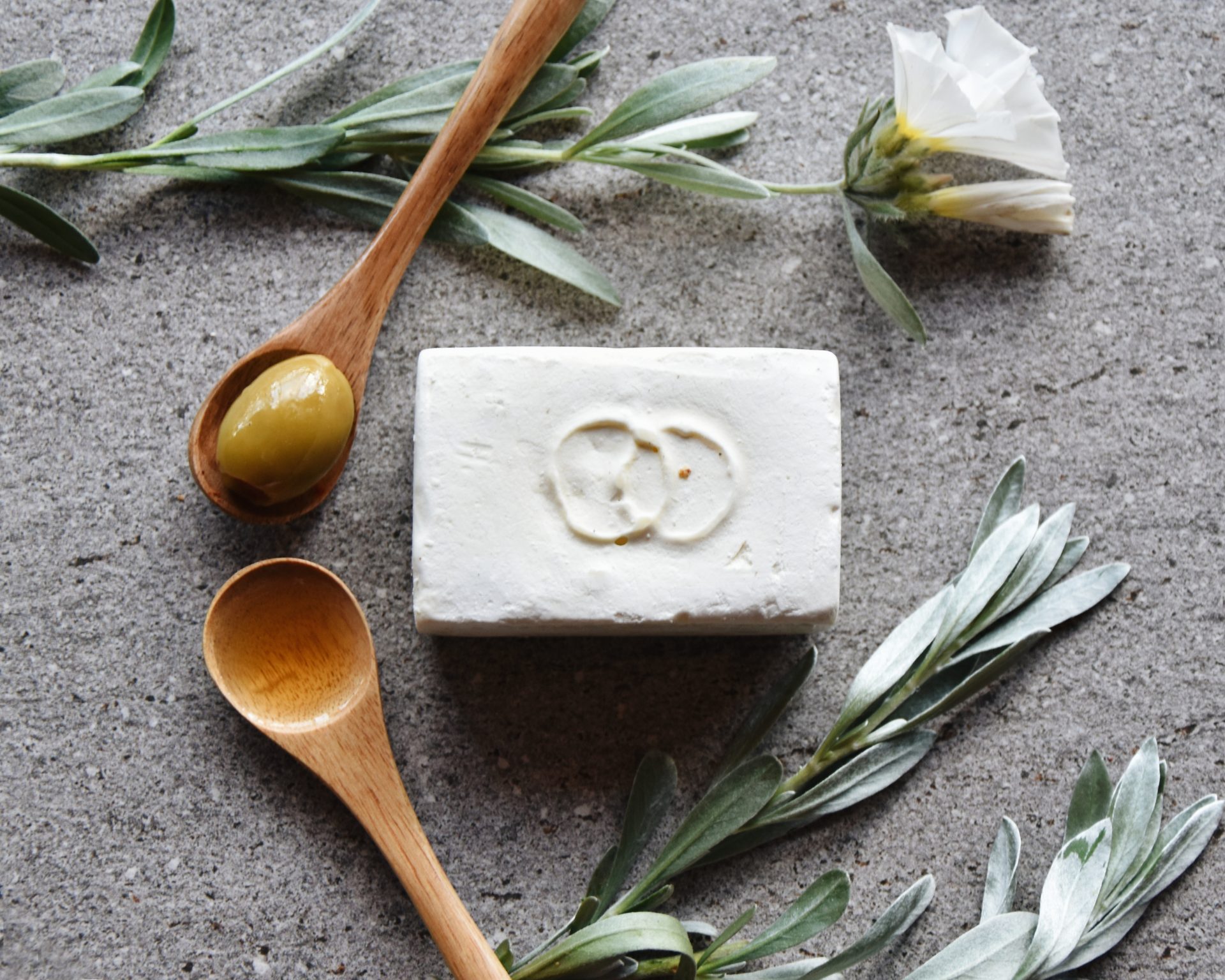Love to have bright, clear skin? I think that’s a yes for most of us! In this article, we explore the relationship between our gut and skin (the gut-skin axis) and how looking after your gut health can lead to healthier, more vibrant skin.
If you are struggling with issues such as rosacea, acne, eczema or psoriasis, I believe you’ll find this topic especially helpful. While topical treatments can be beneficial for these inflammatory skin conditions, often the turning point to healing or reducing their symptoms is improving your digestive health.
What is the gut / skin connection?
Your gut microbiome is an army of healthy bacteria, viruses and fungi that live in your digestive tract. This colony of microbes is responsible for many essential functions in your body.
Your gut and skin are in constant communication with each other via chemical signals from the gut microbiome. Their relationship is known as the gut-skin axis and what’s going on inside your gut is often reflected in your skin.
A well functioning gut microbiome generally means healthy skin. However, when you experience gut issues, your skin is usually the first thing to tell you something isn’t right with signs of breakouts, irritation, sensitivity, and dryness.
The damage caused by inflammation
Research tells us that if our digestive health is poor – whether the cause is diet, stress, lack of sleep or medications – the gut becomes overrun with bad bacteria.
This surge in bad bacteria leads to inflammation and chronic inflammation is the root cause of many diseases and poor skin health.
Inflammation in the gut releases pro-inflammatory cytokines throughout the body and when this inflammation is maintained for prolonged periods it can result in different forms of disease.
Inflammation can affect the skin in various ways including redness, sensitivity, and even the breakdown of collagen which can speed up the signs of ageing.
Eczema, acne, rosacea, dry skin, are a few of the more common skin concerns linked to an unbalanced gut microbiome. From my clinical experience, good bacteria can help prevent these presentations.
How to improve your gut health
Our microbiome is the result of genetics so everyone’s unique gut microbiome is a little different. However, there are factors you can control, like making changes to your lifestyle and environment, to improve your gut health.
Here are ways to improve your gut health – not only for better skin but overall increased wellness.
Diet – Eat a High-Fibre Diet and Avoid Sugar
Simple sugars absorb in the higher areas of the small intestine and contribute to inflammation which harms the bacteria and function of your gut microbiome.
Foods with simple sugars include lollies, soft drinks, chocolate, ice cream, cakes, cookies, doughnuts, sweet pastries, and many cereals.
On the other hand, high-fibre foods are beneficial to the quality of bacteria in the microbiome.
Dietary fibre that is digested or fermented in the intestines can help maintain pH levels and feed good bacteria while limiting the growth of harmful microbes.
A few good high-fibre foods to add to your plate include:
- Bananas
- Nuts
- Whole grains
- Legumes
- Raw garlic
- Onions
- Leek
Also focus on incorporating plenty of leafy greens, cruciferous vegetables, and lean proteins to get your gut back on track.
Start with small changes when increasing the amount of fibre in your diet. It’s common to experience increased bloating, gas, and other digestive issues over the short term.
Lifestyle Changes
The quest for a healthier gut and complexion calls for a holistic approach – working on the inside and outside.
Exercise
In addition to a well-balanced diet, a regular fitness routine is essential; be it daily walking, swimming, bike riding, yoga, or more intense workouts.
Physical activity helps us maintain quality routines, mental health and good sleep habits which keep our entire body operating optimally.
Reduce stress
Stress has a big impact on your gut health. In stressed and anxious states, out bodies release the hormone cortisol. Practicing stress-management techniques such as exercise, self-care, avoiding stressful situations, breathing exercises, and talking to a friend or therapist.
Be mindful of antibiotics
Taking care of your general health also helps boost your resilience to illness which means you’re less likely to be reliant on, or prescribed, antibiotics to get you back on your feet.
Antibiotics do real harm to your gut microbiome. They wipe out both good and bad bacteria and it can take weeks, months, or even years to recolonise your gut with good bacteria. Unfortunately, in some cases, your microbiome may never be able to fully recover.
I believe the use of antibiotics is still out of control and, frankly, many times unnecessary. Yes, there are times when antibiotics are called for but it’s important to understand the repercussions for your gut health. If you do have to take antibiotics, focus on doing what you can to support your gut through diet and lifestyle choices.
How long will it take to get my gut healthy again?
Removing inflammatory foods, incorporating more fibre, regular exercise, and reducing stress can generally help you reset a troublesome gut in 4-8 weeks. This is a general guideline, depending on the state of your gut, it can take longer.
Want more help getting your gut sorted?
Feel like you need a hand diving deeper into your digestive issues and nurturing your gut back to health? I suggest getting in touch with my friend and colleague Angie Sinclair, the Digestive Detective. Angie offers a free 15min phone consultation and loves talking about your guts! Reach out you want some extra support!
Your skin’s microbiome
Did you know your skin also has its own microbiome? That’s right, your skin is teeming with beneficial bacteria too!
Just like nurturing your gut health for better skin, you also need to create an environment for your skin’s microbiome to thrive.
This means choosing the type of skin care that supports a happy balance of good bacteria. What you put on your skin is just as important as what you eat!
Skincare ingredients to avoid
The wrong products – especially those that strip the skin of natural oils and change the pH level – will cause an imbalance in the skin’s microbiome bacteria. This can lead to issues like dryness, acne, irritation, and exacerbate inflammatory skin conditions like rosacea and eczema.
Avoiding products with balance-disrupting ingredients like parabens, sulphates, phthalates, mineral oil and petrolatum, formaldehyde, triclosan, retinol, fragrance, gluten, silicone, and dimethicone.
 Choose plant-based to support skin health
Choose plant-based to support skin health
Instead, choose plant-based products like our Olive Oil Castile Bar Soaps, Liquid Castile Soap, and Manuka Honey Hand and Body Lotion.
With ingredients like pure essential oils, olive oil, and Manuka honey, they support a healthy environment for good bacteria and feed your skin with beneficial nutrients. The result? hydrated, glowing, and healthy skin.
Your health is in your hands!
As you can see, there is plenty you can do to take charge of your gut skin axis and overall health by making positive dietary and lifestyle changes to restore your army of “good” bacteria.
Naturopaths have for many decades put our primary focus on the importance of well-maintained gut health for optimal general health.
We appreciate that Western medicine now supports the role that the gut plays in our health and are able to continue deeper research into the gut skin axis which will benefit everyone.
Deb Bower
Naturopath


4 Comments
wonderful blog and information
Thanks Sue, glad it is helpful. deb
How do I release lymph build up from knees to groin area on left leg.
Hi Sally,
There are many reasons for this and without doing a case history or seeing an image it is hard to say. I believe you may have a condition like Lipoedema or Lymphoedema but I recommend you see a Dr Vodder lymphatic therapist. if you go to http://www.vodderschool.com and find a therapist and click on Australia (or whatever country you live) & the state you live. if no luck send me an email at info@oliveash.com and will direct you.
Add Comment